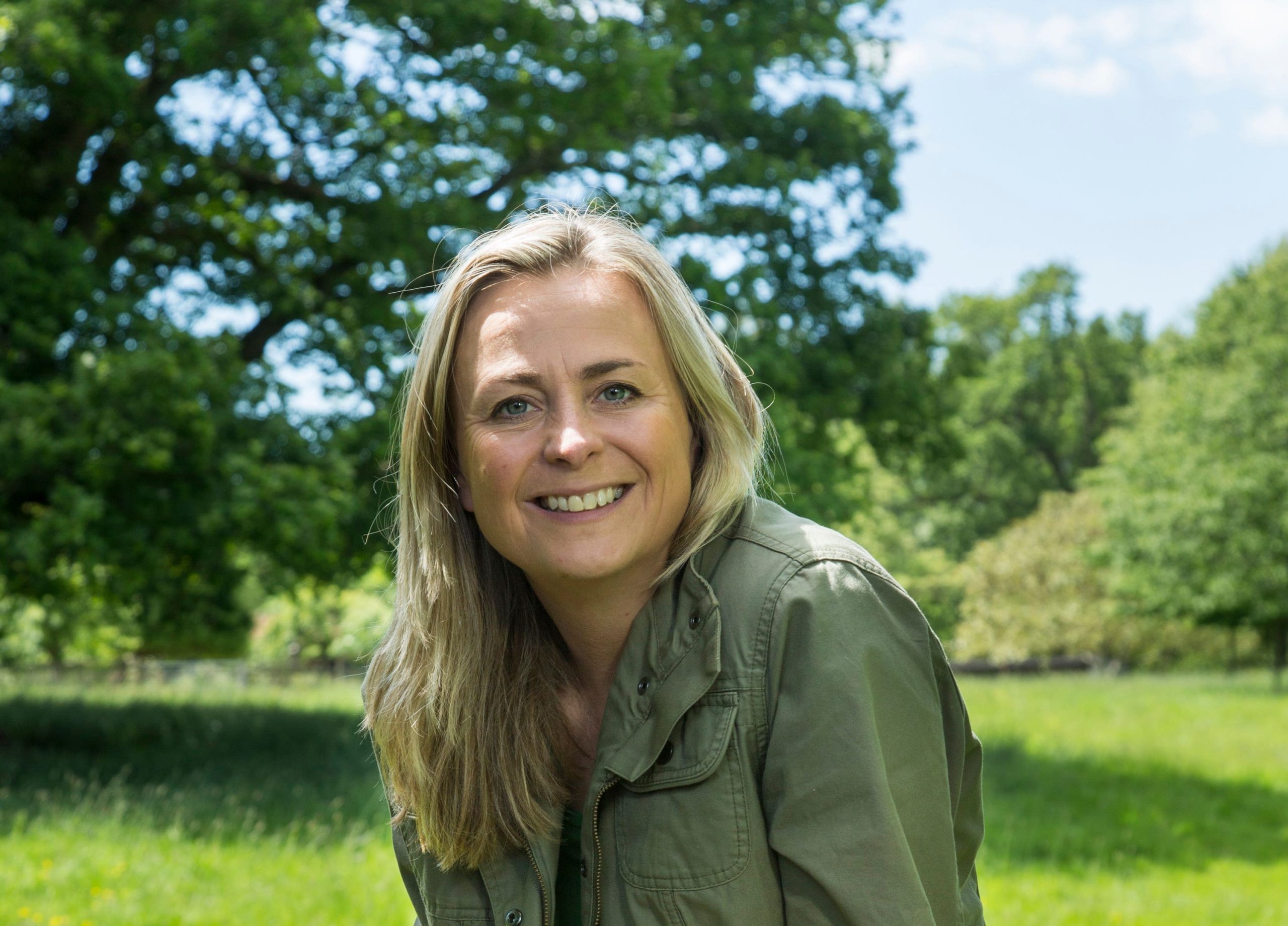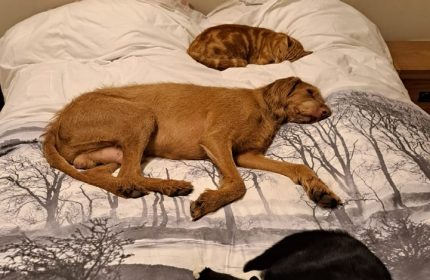Philippa Forrester: I miss the thrill of the wild
The wildlife presenter and author talks about her return to the UK, after six years in Wyoming.
She’s had close encounters with bears, wolves and charging moose, but TV presenter and environmentalist Philippa Forrester is back on home turf, after spending six years with her family in the wilds of Wyoming.
Seeing foxes from the window of her UK home may not excite the former Tomorrow’s World and Robot Wars presenter as much as the bears she encountered in the US, but she hasn’t lost her sense of curiosity.
View this post on Instagram
“When I see a fox run by, my immediate thought is, ‘What’s he up to? Where’s he going?’ Journeys are so much of life,” she enthuses.
“This is home for me, so that feels good – it can be tame in a good way. I don’t have to worry about grizzly bears when I take the dog for a walk through the woods. That said, I do miss the thrill of the wild.”
Forrester, 54, has now written Amazing Animal Journeys, which centres on migrations and journeys of all creatures great and small – from butterflies and spiders, to wildebeest, Siberian tiger and African elephant. Although it’s designed for children, adults will no doubt be dipping into it as well.
View this post on Instagram
Forrester, who has three sons – Fred, 22, Gus, 19, and Arthur, 16 – with Charlie Hamilton James, says: “When the boys were small, I did a live programme for Radio 4 once a week about animal migrations. It was the first live natural history programme called World On The Move, and I’ve never forgotten it.”
The family moved to Wyoming in 2015 when wildlife cameraman Hamilton James was doing a job for National Geographic. They thought they’d be there for a few months, but ended up staying for six years, returning to the UK after the first lockdown.
It’s a decision she doesn’t want to elaborate on today. “It was just our time to come back.”
View this post on Instagram
It’s not the first time she’s returned home from Wyoming, having worked with The Brain Tumour Charity in 2018, to campaign for early diagnosis in brain tumours.
Her involvement happened after her eldest son, Fred, then 15, was diagnosed with a brain tumour in 2016, after struggling to concentrate at school and suffering severe exhaustion and blinding headaches.
An MRI scan detected the tumour, and the teenager underwent a four-hour operation to remove it.
“Early diagnosis is so important, which is why I came back to England and did some work with The Brain Tumour Charity to campaign for early diagnosis of brain tumours,” she has said previously.
View this post on Instagram
Fred is now a falconer and doing well, but Forrester is missing Wyoming terribly, she admits. “The thing I most struggle with is that we’ve got rain instead of snow. I found winters in snow much easier. You can run, ski and do stuff.”
It took some adjustment for them to settle back into life in the UK, she reflects.
“Lockdown didn’t help, because part of the joy of coming home is to see everybody. It was tricky.”
Forrester is doing more work off camera these days, writing and editing conservation programmes, and coaching environmental groups on storytelling. She also has a YouTube channel, where she is currently reviewing electric vehicles.
View this post on Instagram
She hopes to do further TV projects and says there is less ageism in TV among female presenters than there used to be.
“Now you see older women all over the place – on TV and in politics. Things are changing for the better, but not quickly enough. When you look back at some of the stuff we had to do, it was completely bonkers.
“I’ve just re-watched Downton Abbey and thought, ‘What do you mean, women couldn’t vote?’
“I think there’s more acceptance of women in prominent positions. Women are taken more seriously than they were, and I hope that myth of ‘There’s only one woman who can’t be taken seriously, and that’s a young attractive one’ is out of the window.
“Generally, we are becoming more diverse – and that’s a good thing.”

While she was at Tomorrow’s World, she took a second degree in environmental conservation, which she says feeds into all the work she does.
“We are not in a good state, environmentally. We are doing huge amounts of damage. Every one of us needs to pull our weight and change things.”
She vividly remembers, 25 years ago, writing about climate change and global warming, and the effects of it. The main one being unpredictable and extreme weather patterns, and a higher rate of extinction.
“It’s all playing out now. But, whether or not we are too late, we can all do something. Even if it’s just planting a bush on your balcony to help a pollinator get along buildings.”

She has a fiction book coming out next year for children and says it’s becoming more difficult to get younger audiences off screens and into the great outdoors.
“Getting children off screens has been a battle for my generation from day one, certainly with my younger ones.
“When Covid hit, it was like a licence for children to be on screens as much as they liked – for school, for social life.”
She gets frequent bouts of wanderlust and is hopeless at sitting at a desk all day, preferring to be outdoors, or at least moving around.
View this post on Instagram
“I like to keep fit. I have a running machine, I take the dog for a walk, and I love yoga. I also try to do some weight training, but I don’t love it.”
As for her career, she reflects: “I’m maybe not ambitious enough. I have three boys, no end of projects and a podcast, Conscious, about sustainable living. So, it’s not for lack of keeping busy. I will always welcome opportunities when they come.”
Amazing Animal Journeys by Philippa Forrester is published by DK. Available now.
The Press Association
Latest posts by The Press Association (see all)
- Top winter gardens to see snowdrops - January 14, 2025
- Hundreds of thousands of people aged 50 and 52 to be sent bowel cancer test kit - January 14, 2025
- Debut authors to watch out for this year - January 14, 2025
- Michael Rosen on importance of rhyme in new We’re Going On A Bear Hunt sequel - January 13, 2025
- The easiest seeds to sow in winter - January 13, 2025





















